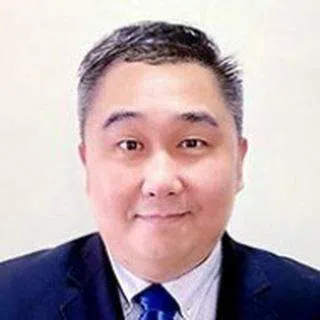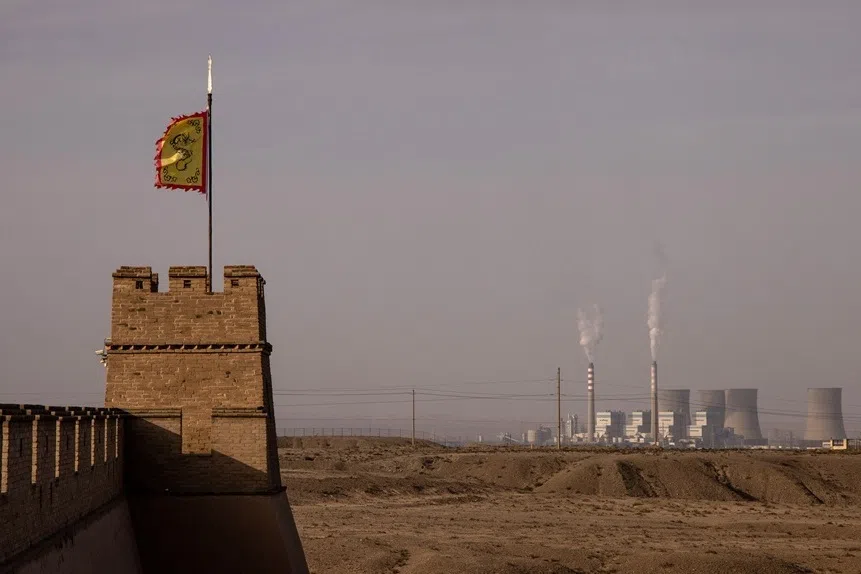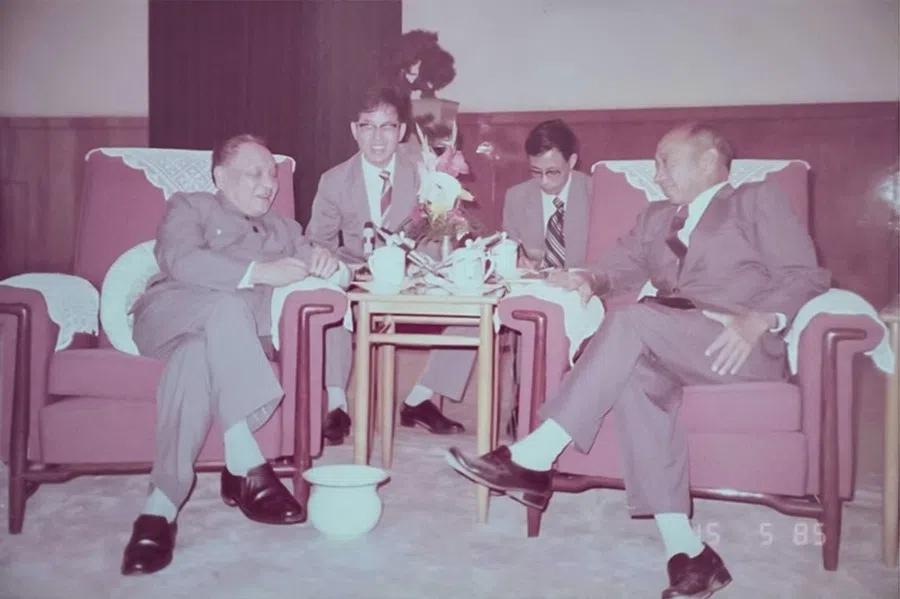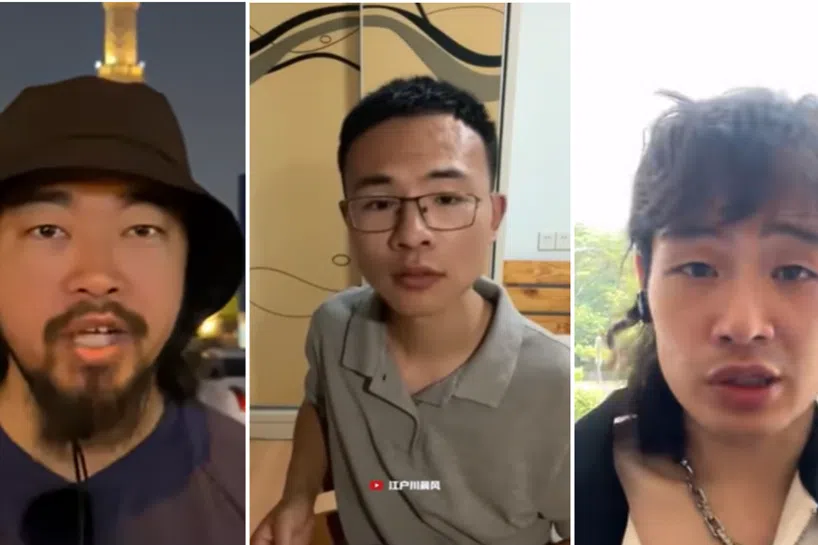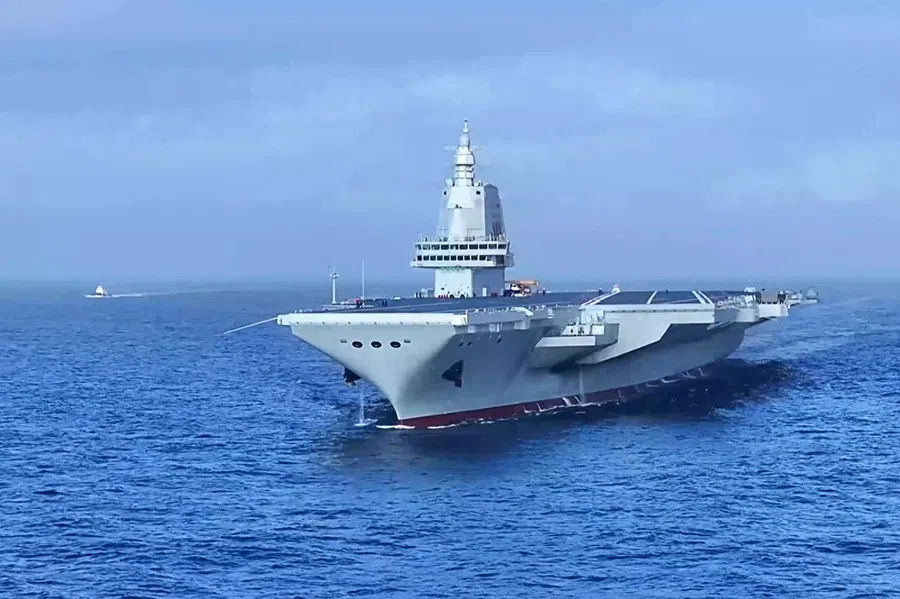Balancing China: Can Japan continue to be a reliable power in SEA after Abe?
Academic Victor Teo says that Japanese Prime Minister Suga Yoshihide has big shoes to fill as his predecessor Shinzo Abe had made visible and significant achievements on both the domestic and diplomatic fronts. With the Biden administration in place in the US, and a rising China amid a post-pandemic world, how will Suga's Japan engage Southeast Asia? Will he reaffirm the "silent" leadership role that Japan has played in the region through economic and security means? Furthermore, Japan has guided the US in regional matters during Trump's presidency and has been keen to include Southeast Asian countries in the Quad. Can Japan fulfil its security goals without seriously antagonising China?
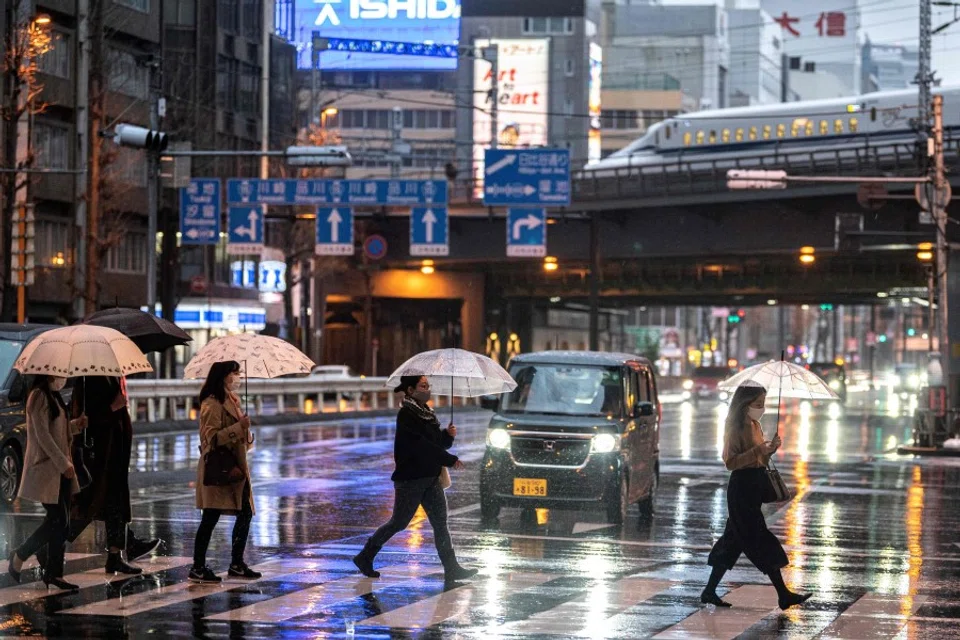
Many observers perceive that there will be more continuities than breaks in Japan's foreign policy under Prime Minister Suga Yoshihide. While largely inheriting the fruits of Shinzo Abe's foreign policy achievements, Suga is at the same time constrained by the perimeters of the practices and systemic constraints Abe instituted. Suga's immediate priorities are to combat the Covid-19 epidemic, realign Japan's supply chains and cope with the economic fallout from the pandemic. The success of these tasks will determine the level of support for his leadership in the general elections to be held on or before 22 October 2021. As of January 2021, Suga's approval/disapproval ratings had dropped and risen to 39%/49% respectively in a Yomiuri poll as the pandemic worsened in Japan.
Southeast Asia should therefore anticipate some adjustments in Japan's foreign relations, particularly in tone and rhetoric, and at the same time expect Tokyo's fundamental concerns and policy trajectory to remain relatively constant.
The legacy Abe left behind in Japan politics and foreign policy
Of the 32 Japanese prime ministers since the Second World War, Abe has the distinction of being the longest-serving individual. His unprecedented long political reign enabled him to make a distinctive impact on both Japan's domestic politics and foreign policy. He arguably achieved an unprecedented consolidation of power in the Kantei (Prime Minister's office), and successfully shifted Japanese foreign policy towards one premised on neo-realist realpolitik considerations. His achievements mark a watershed departure from postwar Japan foreign policy, with scholars attributing the changes as the "Abe Doctrine". The Kantei Suga inherits is therefore one that has been "turbo-charged" due to his predecessor's overwhelming success.
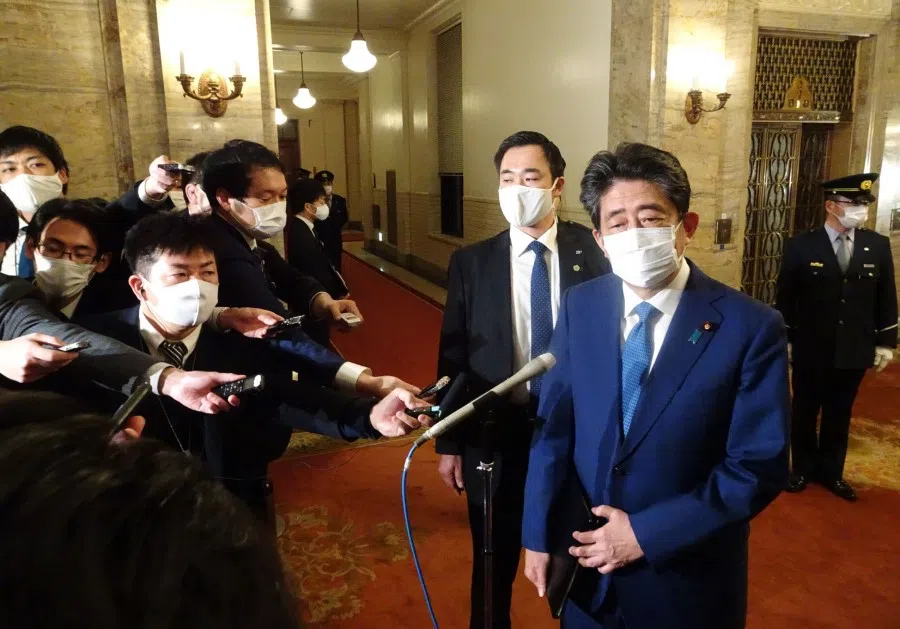
Abe's political longevity has the following domestic characteristics: a political brand name with a clear conservative policy agenda that appealed to traditional Japanese nationalism as well as a forward looking agenda that the Japanese could identify with and support; shrewd political machinations that reduced traditional pork-barrel factional politics and increased the power of the LDP Party President in electoral politics; and the promotion of neo-conservatism through narratives of hope and vision and through the language of democracy.
Externally, the North Korea threat and China's rise have been the most important geopolitical developments that facilitated Abe's political platform, enabling the prime minister to rein in three important traditional sources of power within the Japanese political ecosystem - i.e. the Japanese media, the bureaucracy, and the fractious Liberal Democratic Party - with more conservative support. Although some commentators have lauded him as a champion for a liberal international order, Abe's efforts to "normalise" Japan comes at the cost of eroding the institutions that had come to define Japan as a peaceful state in the post-war era.
Normalisation of Japan's security posture under Suga
Suga has promised to carry on Abe's work and steer Japan in the same conservative direction as his predecessor. In continuing the narratives and policy adjustments that ensure that Japan stays the course of achieving the "Beautiful Japan" Abe envisaged, Suga will have to keep pandering to the neo-conservative constituency to rally support in the general elections that are to be held by October 2021.
For starters, Suga's national security strategy will need to continue Abe's legacy in three key areas: (1) eroding pacifism through the rehabilitation of the use of military force and through remilitarisation; (2) adapting US-Japan alliance to serve Japan's needs; and (3) revising the constitution.
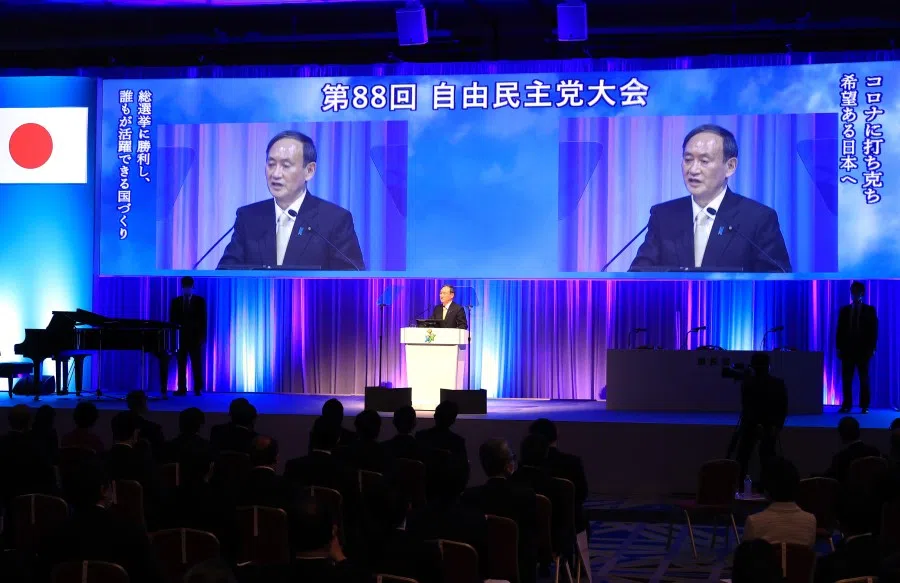
The erosion of pacifism seeks to socialise Japanese society to the use of military force. For Japan to remilitarise and to undertake a more pro-active (as opposed to reactive/passive) defence posture, and to reacquire the sovereign right to use force like any normal state, it needs to overcome the post-war pacifist norms that have come to define Japan as a nation since 1945.
There are two aspects to this. The first involves changing the hearts and minds of ordinary Japanese on the necessity for this transformation. Abe has done an extremely good job in persuading the public of how dangerous the world they live in is and of the need for Japan to remilitarise. The second part is to legalise policy changes that are needed to effect such a normalisation, with constitutional revision as the ultimate goal.
Suga is likely to continue Abe's legacy through the institution of Quad plus, possibly by bringing in Southeast Asian partners.
Today, advocates for remilitarisation can be divided into three broad categories. There are those who seek remilitarisation in order to strengthen the US-Japan alliance (Alliance Supremacists); then there are those who believe that Japan needs a strong military to thrive in the global community (the UN Believers); and finally, there are those who believe that remilitarisation is necessary to ensure Japan's survival in a new and dangerous world (New Realists). Most, if not all, advocate doing this within the rubric of US-Japan alliance.
Suga will no doubt continue Abe's legacy in trying to adapt the US-Japan alliance in such a way as to suit Japan's goals. The key question is whether Japan can continue to do so as an equal partner to the US and not be relegated to junior partner status in the alliance. When he was the chief cabinet secretary (2012 till 2020), Suga assisted Abe with a number of initiatives to ensure that Japan could function more effectively as an alliance partner. These included upgrading the Japan Self-Defense Forces (JSDF) to ministry status in 2007; establishing in December 2013 a National Security Council with streamlined bureaucratic and intelligence capabilities; and introducing several legislations to deploy the JSDF to support US-Japan overseas operations, thereby cementing Japan's right to collective defence. Japan's latest effort is aimed at enhancing the US-Japan alliance by bringing in new partners such as India and Australia to form the Quad dialogue. Suga is likely to continue Abe's legacy through the institution of Quad-Plus, possibly by bringing in Southeast Asian partners.
Without the pandemic, Suga would very likely be already trying to amend the constitution, which the neo-conservatives have been pushing for. The Japanese public has been lukewarm so far to efforts to amend or abolish the Article 9 war-renouncing clause. Regardless of the pushback, Abe himself has expressed regrets that he was unable to meet his goal of amending Article 9 by 2020.
A constitutional amendment first requires two-thirds of the Diet's votes for the proposed amendments to be approved before it can be put to a referendum. The Diet has been debating a constitutional amendment law since 2018, with fierce opposition from left-wing parties such as the Communist Party of Japan. The Covid-19 epidemic has all but stopped the deliberations, but it is likely that the constitutional amendment law will be voted on sometime in 2021. If this happens, the substance of the actual constitutional amendment will be discussed during the Suga administration, assuming he is still in power then.
Suga is well aware of the difficulty of revising the constitution, and his appointment of Nobuo Kishi as defence minister is, therefore, a political masterstroke in more ways than one. At the very least, it is an expression of reverence for his predecessor's conservative nationalism, political strategy and realpolitik manoeuvres, even though it has been widely acknowledged that Suga is not as ideological and nationalistic as Abe.
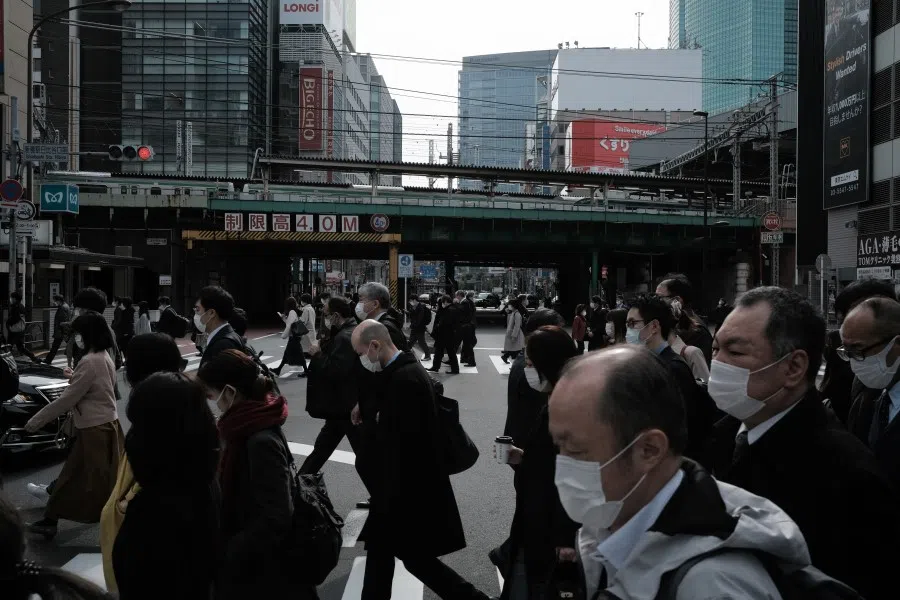
As Suga has the support of the factions and former Prime Minister Abe, his chances of re-election looked good initially with a 74% popularity rating in September 2020. The approval rating for his government on 16 January 2021 fell to around 33% before climbing 5% to 38% a month later in polls conducted by Mainichi Shimbun, the Japanese daily. The failure of Abenomics means that there are lingering doubts about whether Suga is the correct long-term choice for Japan. His relative lack of broad-based support within the LDP also works against him. With the deterioration of the socio-economic situation in Japan being attributed fully to the pandemic, the crisis may have given the LDP (and Suga) a respite as the nation looks to a steady hand to guide it through the crisis. If popular support for the LDP falls, or if the current pandemic and economic crisis worsen, he is likely to face a leadership challenge.
Within Japan, there are those who regard a Democratic administration as likely to be weak on China, and they have reacted to Biden's win with dismay.
Subtle shifts in US-Japan alliance
Under the Obama and Trump administrations, Japan had played a more active and dominant role in the US-Japan alliance. First, for most of the Obama period, Japan "held the fort" in Southeast Asia while the US was distracted by the war on terror. Second, Abe became the intellectual architect of important initiatives within the alliance. Third, because of Abe's ability to manage the mercurial Trump, he was popularly known as the "Trump whisperer". To many observers, Abe was the senior statesman in the US-Japan alliance. There was also a perception then that Tokyo had silently replaced the US as the dominant and reliable power in Southeast Asia. However, with a strong and experienced foreign policy and national security team currently in Washington, the US is likely to resume the dominant partner role in the US-Japan alliance.
Within Japan, there are those who regard a Democratic administration as likely to be weak on China, and they have reacted to Biden's win with dismay. The Biden administration does not have much leeway to reverse Trump's position on China, given how the domestic mood has changed against China. This means that Sino-US tensions will probably remain high, and this would impact Japan's own recovery as well.
Tokyo has drawn important lessons from its interactions with Trump's America, and there are indications that Japan may take measures to ensure that it is equipped to deal with the president that the US has, as opposed to the one they want. In this regard, Suga's government is likely to maintain Abe's legacy of undertaking a series of pro-active and independent diplomatic and defence initiatives outside of the US-Japan alliance to hedge Japan's position. Southeast Asia will therefore become more important to Japan in this regard.
Japan seeks to strengthen its ties with Southeast Asia to bolster its own security...
Implications for Japan's relations with Southeast Asia
Japan's relations with Southeast Asia improved significantly with the introduction of the Fukuda Doctrine. Tokyo strengthened its economic linkages and extended Overseas Development Assistance (ODA) to help the Southeast Asian countries grow and prosper. In the post-Cold War world, Japan further expanded its influence by undertaking peacekeeping and peacebuilding operations and stepping up ODA to the region. Under Abe's stewardship, Southeast Asia became more important to Japan as a political lobby and strategic counterweight to China, particularly in the maritime domain.
Suga regards Southeast Asia in the same manner. Like Abe, Suga's first diplomatic trip as prime minister was to Vietnam and Indonesia, and not to the US. Japan seeks to strengthen its ties with Southeast Asia to bolster its own security, a realisation underscored by Covid-19 when global supply chains and the flow of critical goods were disrupted due to over-reliance on the Chinese market.
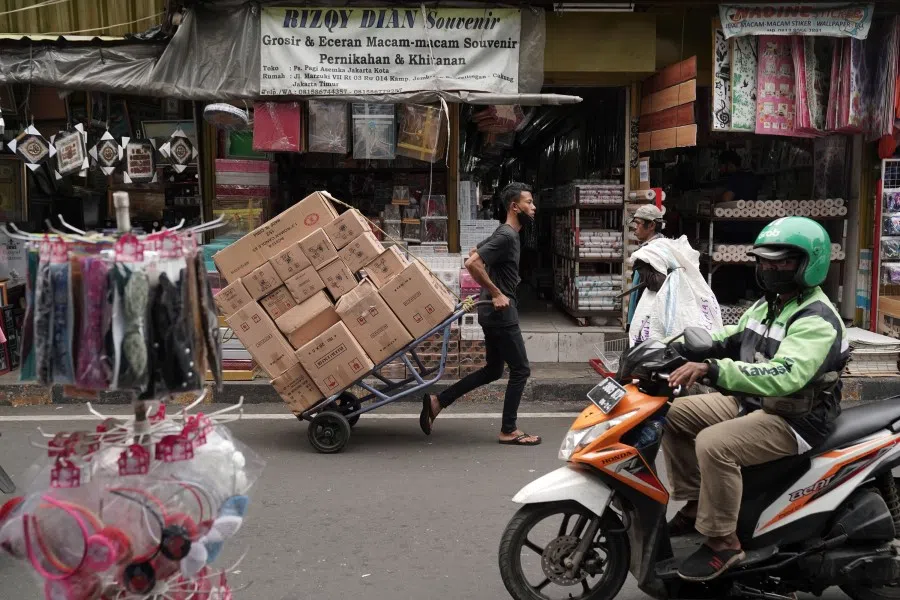
Going forward, Tokyo will seek to further reduce its asymmetric reliance on the Chinese economy. On the one hand, Japan will "delink" its cutting-edge high-tech industries, especially those with dual-use applications, from the Chinese market. On the other hand, it will leverage China's growth by strengthening cooperation in non-sensitive sectors. These include producing chemicals, equipment and components for products assembled in China. With Japan's two main strategic partners, the US and India, still mired by the pandemic and the intensifying economic malaise, maintaining access to the Chinese market is now even more important for Tokyo.
Southeast Asia will be a key plank in Tokyo's market diversification strategy. Even before the pandemic, factories were already adopting a "China + 1" strategy to diversify their risks and reduce dependence on China's supply chain. Tokyo's effort to set aside 243.5 billion yen (US$2.2 billion) in 2020 to help Japanese firms relocate from China to ASEAN countries such as Vietnam, Thailand and the Philippines have borne some fruit. This is on top of the 57.4 billion yen (US$541 billion) fund that Japan set aside for companies to move out of China to Japan or Southeast Asia.
By end 2020, 37 out of 81 Japanese firms had received their government's subsidies and relocated their factories from China to Vietnam. Thailand was the second popular option, with 19 firms. In 2020, Japan was the sixth largest investor in Vietnam with US$786 million in investment, with 57% of Japanese firms there indicating that they have the intention of expanding their operations.
By cultivating closer economic ties with Southeast Asia, Japan strengthens its access to raw materials and labour, and is able to build more resilient supply chains. Conversely, Southeast Asia benefits from the greater employment opportunities and the technologies that Japanese companies bring, thereby boosting their economic growth prospects. Suga has expressed Japan's interest to engage in a wide variety of bilateral cooperative projects in the region going forward - but the realisation of this is contingent on Japan's own financial situation after the pandemic.
Most Southeast Asian countries, minus Singapore, Thailand and Brunei, have continued to benefit from Japan's ODA throughout the pandemic. Other than longstanding items of ODA cooperation in areas such as building infrastructure and economic corridors, Tokyo has been quick to institute pandemic-related aid. Japan's Covid-19 assistance ranges from extending funding to help the region acquire medical supplies (testing kits) and equipment for its hospitals and training its personnel to fight infectious diseases, to providing financial assistance to local companies to weather the negative impact of Covid-19. The biggest funding packages went to the Philippines, Indonesia, Myanmar and Cambodia. (See table on Japan's assistance to Southeast Asia in 2020 below.)
Japan does not employ vaccine diplomacy
Unlike China, Japan does not employ vaccine diplomacy in Southeast Asia. This is due to two main reasons. The first is that the Covid rates in Japan were largely contained for the most part of 2020. Hence, there was no sufficiently large pool of candidates for the testing of vaccines. The second, and perhaps a more important reason, is that the Japanese are inherently suspicious of vaccines. This is due to past lawsuits related to the side effects of vaccines against the Japanese government. Hence, the government has been extremely cautious in approving the use of vaccines. For instance, even though there were announcements as early as August 2020 that the anti-viral flu drug "Avigan" developed by Japan's Fujifilm Holdings would begin clinical trials in the Philippines as a possible Covid-19 treatment drug, the company's global ambitions were thwarted after government officials deferred approval of the Avigan treatment as a Covid-19 drug in December 2020. In February 2021, Japan finally started to receive the first doses of overseas vaccines, only after Suga bypassed the bureaucracy to secure supplies directly from the drug maker.
While Japan and Southeast Asia appear to be drawing closer due to their common concerns over China, it does not mean that their common interests will propel them to act in unison against China.
In the security realm, Japan has stepped up efforts to persuade Southeast Asian nations of the importance of its conception of a "Free and Open Indo-Pacific" (FOIP) throughout 2020. Tokyo emphasised the importance of the FOIP concept not only to the maritime Southeast Asian states, but also to the mainland Southeast Asian countries. Most recently, Japan expressed its concerns over rumours surrounding Cambodia's intention to host a Chinese naval presence in the country.
Beyond maintaining a proactive diplomatic posture, Japan recalibrated its ODA strategy to help selected claimant states improve their maritime capabilities to better monitor China's activities and defend their respective legal claims in the South China Sea. Japan concluded its first arms export deal in 2020 after the ban on such exports was lifted in 2014 when Mitsubishi Electric announced that it would be supplying early warning radar systems worth 10 billion yen (US$94.5 million) to the Philippines. Japan is negotiating for items such as planes and vessels to be exported to Vietnam, Indonesia and the Philippines.
To reinforce its FOIP strategy, Japan appears to be trying to lobby Southeast Asian states such as Vietnam and the Philippines to become partners of the Quad in the form of a Quad-Plus arrangement. This might come through an invitation for an informal dialogue or even an option to join an exercise; the Quad itself is expected to evolve from an informal organisation into something formal.
Japan still faces formidable challenges in Southeast Asia. While Japan and Southeast Asia appear to be drawing closer due to their common concerns over China, it does not mean that their common interests will propel them to act in unison against China. In general, the preference of Southeast Asian countries is to be friends with the major and middle powers. Even though they may view Japan more favourably, Tokyo might also find it difficult to sustain the increasing amount of ODA needed, particularly if China's economic might increases and the needs of the regional countries surge after the pandemic. It is also possible that Japan will enter into another period of revolving door prime ministerships if Suga fails to hold onto power.
Japan's sustained engagement of Southeast Asia over the last few years was only possible because of Abe's long reign. The jury is still out on whether Suga will be able to hold onto power and correspondingly deliver the depth of commitment and consistency we saw over the past decade in Japan-Southeast Asia relations.
Notes on table:
- Figures are accurate as of 8 March 2021. - Costs cited as presented in source documents; corresponding approximate amount converted by author using rates as of February 2020 in parentheses. - Covid-19 assistance administered by Foreign Ministry and/or Japan International Cooperation Agency (JICA) often in conjunction with partner agencies if applicable. - Other assistance administered by Foreign Ministry, or Ministry of Defense in conjunction with contractors and/or Japan International Cooperation Agency (JICA) and/or other relevant agencies in single or multi-year basis but received in 2020.
This article was first published as ISEAS Perspective 2021/32 Southeast Asia-Japan Ties after Abe and Trump by ISEAS - Yusof Ishak Institute.
